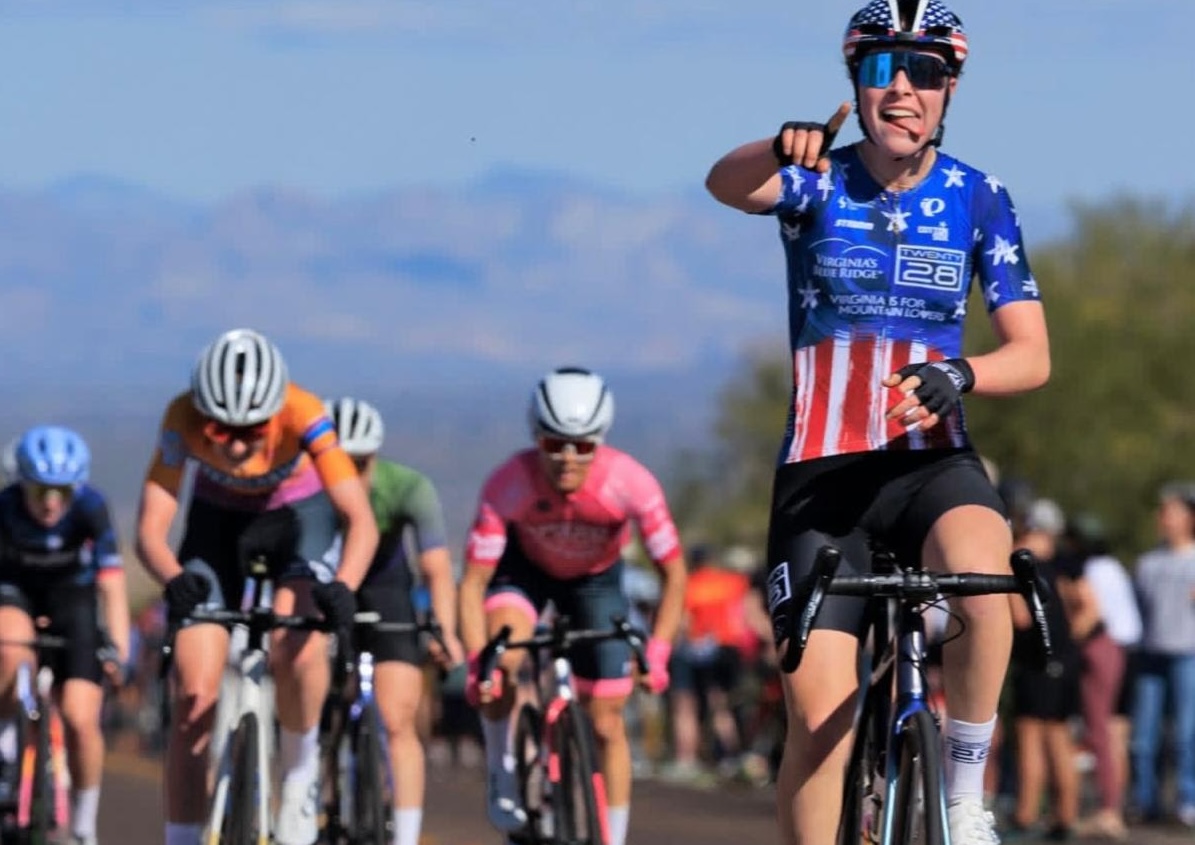'Bigger than a bike race' - Huge crowds, party atmosphere, and tough competition cements legendary status for Athens Twilight Criterium in 45th year
'Athens Twilight is why I race bikes' says veteran Ty Magner
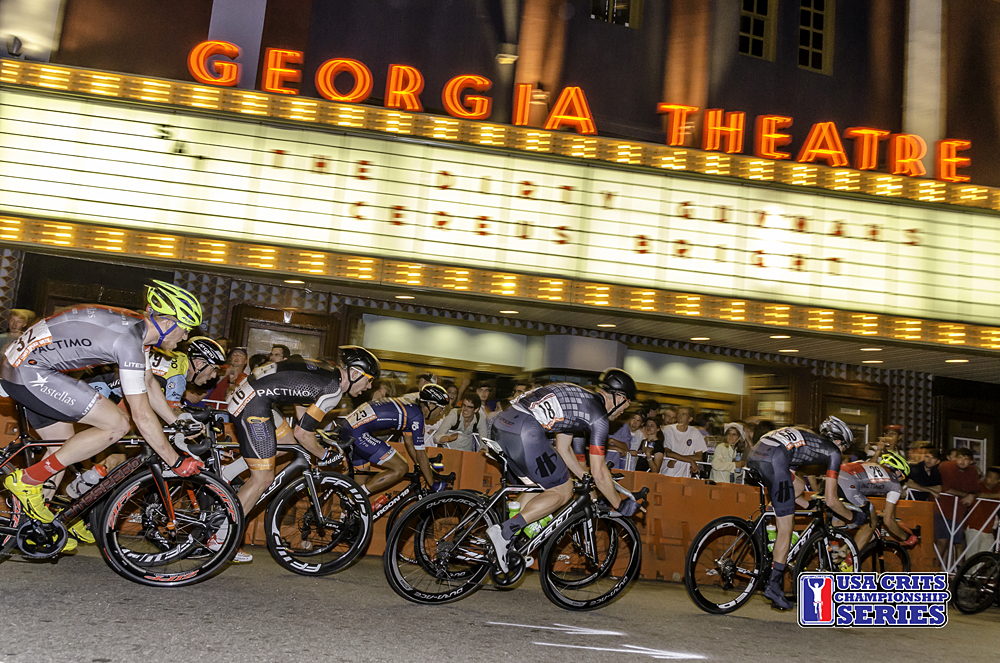
The latest race content, interviews, features, reviews and expert buying guides, direct to your inbox!
You are now subscribed
Your newsletter sign-up was successful
It's spring in Athens, Georgia and that means one thing for bicycle racing in the US: the Athens Twilight Criterium.
Massive crowds and deafening cheers are usually relegated to college football or basketball in the modest town of the University of Georgia. But 45 years ago, the year the Bulldogs won their first NCAA title in football, going 12-0 and winning the Sugar Bowl, the Athens Twilight was born, too.
Gene Dixon launched the one-day bike race in downtown Athens near his bike shop, Dixon's Bicycling Center on West Broad Street, on the north side of campus about a mile away from the football stadium. To make his race different than others, he held the pro races in the evening under the street lights of the four-corner race.
The 'Twilight' was born and became a spring phenomenon for spectators and athletes alike. The race attracted the top stars of cycling for decades, but Dixon continued to build on its sucess, launching the USA CRITS series in 2007.
This year's pro races for the Athens Orthopedic Clinic Twilight serves as the fourth stop in USA CRITS, with the women's races starting at 7:00 p.m. EDT and the men's race at 8:30 p.m. EDT. Live streaming begins at 6:40 p.m. local time.
Alexis Magner (Cynisca Cycling) goes for her third win in a row, which would match Tina Pic for most women's wins in Athens.
Frank Travieso, a Cuban-born rider who lives in Athens, has the most victories for elite men with four, and counting, as he continues to compete at age 45 on Team Flicker. He'll face defending champion Thomas Gibbons of Automatic Racing, and four-time runner-up Danny Summerhill, who now races for L39ION of Los Angeles.
The latest race content, interviews, features, reviews and expert buying guides, direct to your inbox!
Summerhill's teammate Ty Magner is a Georgia-born veteran of the peloton and he has a handful of runner-up finishes as well, but has never won Athens Twilight. Now 34, and having won almost every other US race in his 15 year career - including a US Pro Criterium title - he has a new outlook on the evasive victory in Athens.
"Athens Twilight is why I race bikes. It was the first real bike race I ever saw in person after doing the MTB event in 2004, and I was hooked. Growing up as a kid I only knew of the Tour de France, and Athens Twilight. Everyone in town knows of 'twilight', and It truly is the best week of the year in Athens," Magner told Cyclingnews.
"The race itself has really changed for me over the years. I was once really obsessed with trying to win it - I was many times second, third, fourth - whereas now I see it is as the one time of year my friends and family can actually see what I do, and then I can enjoy beers after no matter the result."
Hard to win
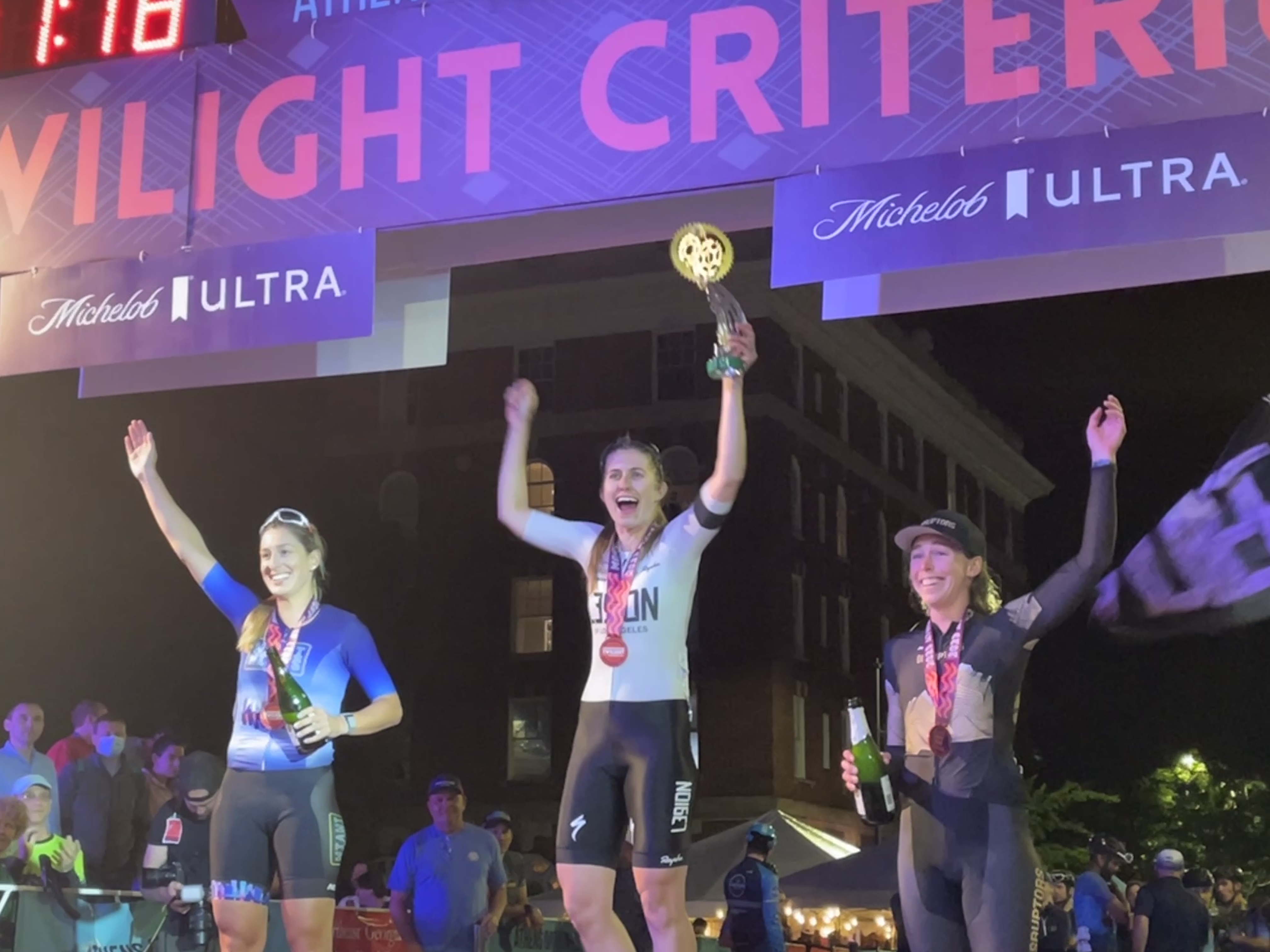
The Athens race has attracted a who's-who of cycling over the decades, including Olympic speed skating gold medalist Eric Heiden, who won five individual gold medals at the Winter Games in 1980. His 1981 victory at the Athens Twilight Criterium was one of his first wins as a pro cyclist.
Steve Hegg made history at the 1984 Olympic Games as the first US athlete to win gold in the Individual Pursuit, so it was no surprise when he came to Athens in 1985 and won the race.
Australian Danny Clark won the first two men's races, 1980-1981, with Steve Bauer taking the win in 1982. Other notable men's winners included Davis Phinney in 1984, Jeff Pierce in 1987 and Chris Horner in 1996. Pierce went on to win a stage in the Tour de France stage win later that same year, while Horner would win the GC at the Vuelta a España in 2013.
A notable claim to fame goes to retired pro Jonas Carney, who finished on the podium six times and never won.
“Jonas Carney crying on stage as he retired from racing, having never won the Twilight—it sticks with you,” Dixon recalled.
Tina (Mayolo) Pic, who attended graduate school at the University of Georgia and adopted Athens as her hometown, has the most victories for women, winning in 2004, 2014 and 2015.
"It was one of the hardest races to win. Athens definitely holds a special place in my heart because I was going to UGA when I first got into cycling and way back then, 1994, 1995, the Twilight was already a legend. I’d heard so much about it but had no idea how amazing and fun it was to race with the massive crowds and the deafening cheers," Pic told Cyclingnews.
"One year they narrowed the course to fit in more crowds and there were 200 guys entered [to race]. The front end of the race was catching the back end of the race leaving some guys trying to scramble off the course with the crowds pushing them back in. Such an epic amazing experience."
Stadium efffect
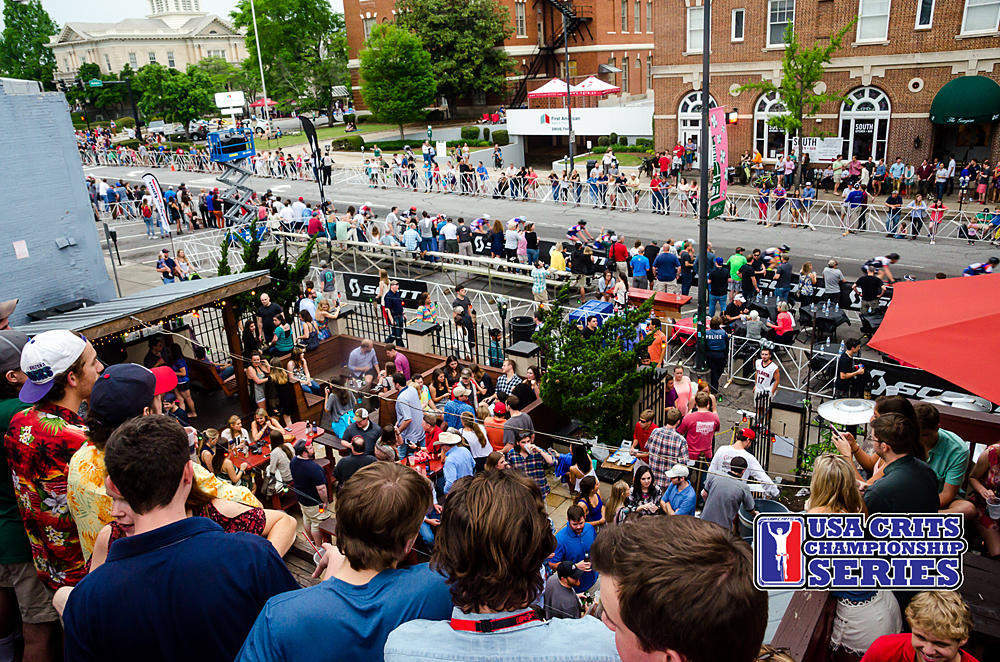
Dixon drew inspiration from other one-day races on the calendar, notably the Tour of Somerville in New Jersey, which started in 1940 and is still a fixture on the domestic calendar. But Dixon wanted something different, something to attract new fans to the sport and create a reason for these fans to also serve as a wave of economic impact for local businesses. The elite races were moved to early evening so people could linger at the local restaurants and bars.
“Moving it to nighttime is what added the engagement of the novice spectator,” Dixon said. “Nighttime creates a more intimate setting and increases the sense of speed, color."
The four-corner course was built on Washington, Clayton, Lumpkin and Thomas streets, and those streets are still used today, with Clayton Street getting a fresh layer of tarmac for 2025. It was basic, with no barricades the first year, just flags lining the course to separate people on the sidewalks from the high-speed racers, according to reports from the local Red & Black local newspaper.
The downtown streets transform each year into a stadium of sorts, thousands of fans hanging out with makeshift parties with folding chairs. Music and race commentators announcers blares from loudspeakers, and riders can almost taste the grilled burgers from the food vendors as they race. The Athens Twilight is not all about uproarious races and rambunctious spectators, as Dixon incorporates family activities like youth races and fun runs, too.
"Last year we were like, 'oh shit, this is legit'. This bike race is not only a bike race but it's bigger than a bike race, it's an event," Lucas Bourgoyne told Cyclingnews in his first appearance in Athens, Georgia in 2024.
"I would say there's about five to 10 races that draw massive crowds, and there's a few among those that have the biggest - Athens is clearly one of them. There's something particularly special when you know the barriers seem to be lined all the way around the course three or four deep, and it's people 18 19, 20, 21. It's all these college-aged kids that turned our heads.
"You've still got your older fans of cycling coming out because they know it's a huge show. But then you also have that younger generation of people that maybe aren't even fans of bike racing but for one night they think it's the coolest thing they've ever seen."
Over the years, Dixon has seen technology change the way athletes compete, from the 10-speed steel frames and caliper brakes to carbon bikes loaded with electronic shifting, but technology now also allows spectators to join the crowds in person or via live streaming.
It's the technology available to race organizers as well as good old fashioned marketing and creativity that Dixon said is a key to keeping the sport of cycling engaging for fans and sponsors in the US.
“The sport needs organization and funding. We need to tell [the athletes'] stories—who they are, why they do this, the extreme nature of the sport. No other sport asks competitors to rely on 100 people inches apart at 30 miles per hour, through 300 corners, with almost no protective gear," he said.
“I am just now understanding the value of the Twilight and how to sell it. For years, I was more focused on the bike shop. But after working more than 200 criteriums from San Francisco to Manhattan, we’ve learned what works and what doesn’t. We’ve built multi-year sponsorships, trained volunteers efficiently, and found ways to keep Twilight growing without reinventing the wheel every year.”
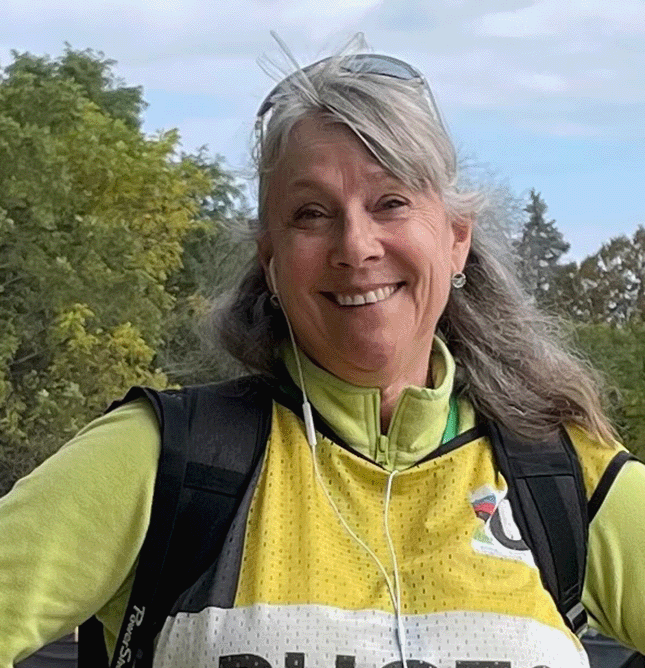
Jackie has been involved in professional sports for more than 30 years in news reporting, sports marketing and public relations. She founded Peloton Sports in 1998, a sports marketing and public relations agency, which managed projects for Tour de Georgia, Larry H. Miller Tour of Utah and USA Cycling. She also founded Bike Alpharetta Inc, a Georgia non-profit to promote safe cycling. She is proud to have worked in professional baseball for six years - from selling advertising to pulling the tarp for several minor league teams. On the bike, she has climbed l'Alpe d'Huez three times (not fast), and spends time on gravel around horse farms in north Georgia.
You must confirm your public display name before commenting
Please logout and then login again, you will then be prompted to enter your display name.
